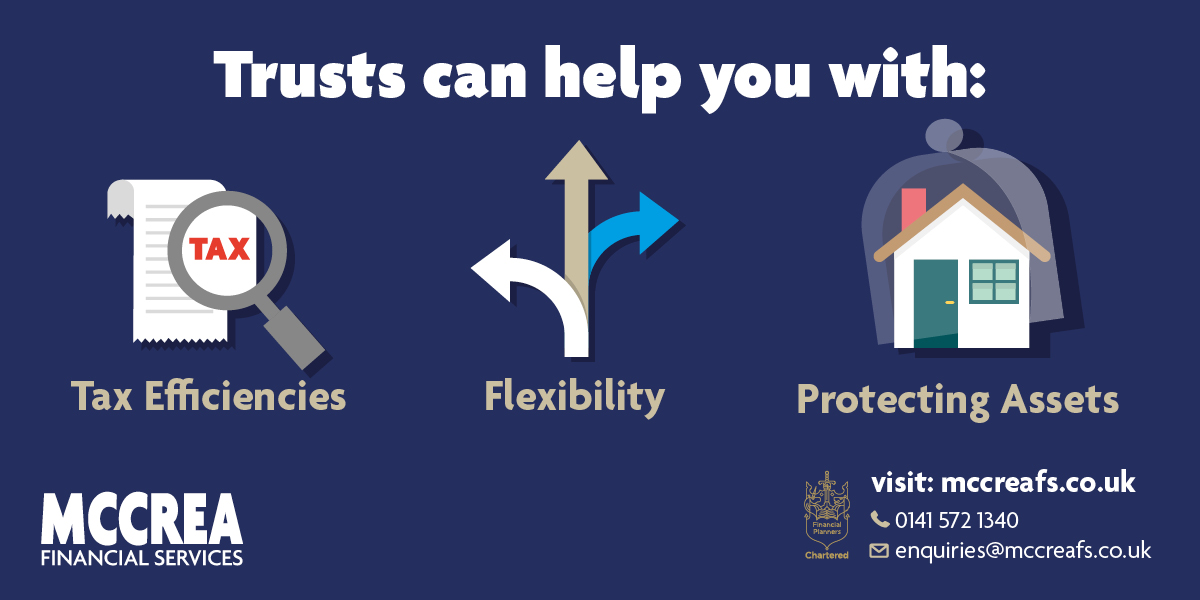The lesser known benefits of trusts
Trusts have been used in Britain since the Middle Ages. They are legal arrangements where one or more trustees manage assets such as money, investments, land or buildings for the benefit of one or more other people, known as the beneficiaries.
The most widely recognised type of trust may be a Bare Trust, where parents and grandparents gift sums of money to their children, who can apply to take over legal control of the fund from the trustees once they reach the age of 16 in Scotland or 18 in the rest of the UK.
Discretionary Trusts are the most flexible, with trustees retaining more power on what each beneficiary receives and when they receive it.
The third type of trust is a Life Interest Trust, also known as an Interest in Possession Trust, which allows beneficiaries to live in and receive income from any property which is owned by the trust. The capital from the trust can be distributed at a later date after the income to the beneficiary stops.
Tax efficiencies
It’s often assumed that minimising tax liabilities is a primary motivation for people to place their assets in trust. While some tax efficiencies can exist, particularly for passing on private businesses, most trusts are now established to take advantage of the increased flexibility and asset protection and control they can offer.
Flexibility
Placing assets into trust means that rather than making final arrangements in a will which may not take effect until decades after it is written, a degree of flexibility can be retained about how assets are divided and when that ought to take place. Trustees can base their decisions on an assessment of the most up to date legal and tax situation, guided by a Letter of Wishes setting out the intentions of the person who first placed the assets into trust.
Asset Protection and control
Asset protection and control is now the most common driver for those placing assets in trust. These arrangements allow beneficiaries to enjoy the advantages of assets held in their name, for example the right to live in or enjoy income from a property, without having to take on the burden of management of the asset, which remains with the trustees. Children may also receive an allowance in this way before being ready to take on management of an investment fund. While not completely inaccessible, assets held in trust are also more protected against loss in cases of divorce or bankruptcy.
Trusts can be a flexible and advantageous way to manage the distribution of assets, and can also be helpful in complex situations such as inheritance after remarriage. Why not get in touch for a free no obligation consultation to discuss the best way to manage your estate?

